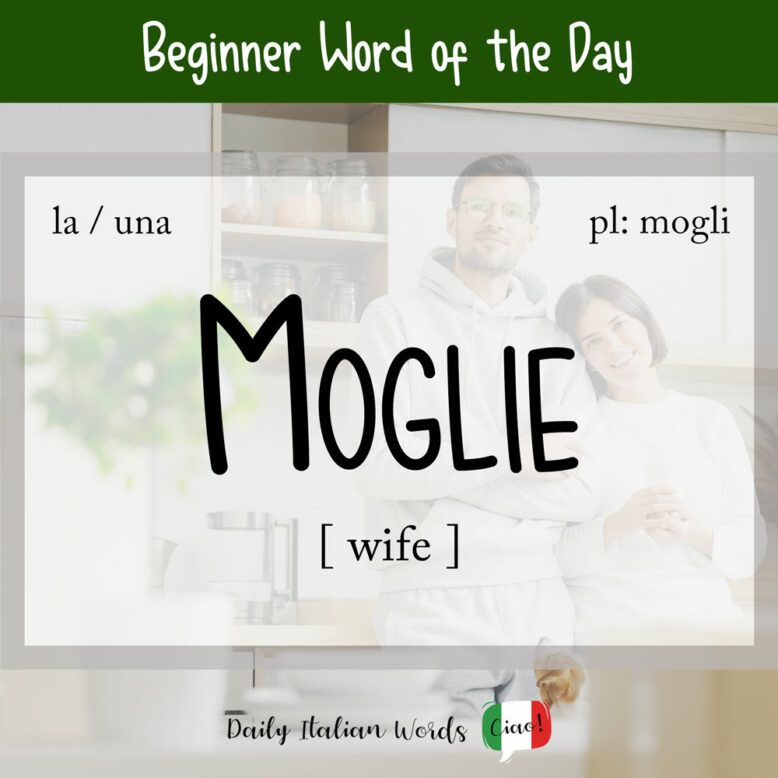The word for wife in Italian is moglie (feminine plural: mogli), which comes from the Latin mŭlier meaning woman, wife or mistress.

Ho conosciuto mia moglie dieci anni fa.
I met my wife ten years ago.
By making it diminutive, you get the word mogliettina which roughly translates as wifey or little wife in English. Husbands often use it as a term of endearment for their other half.
In order to refer to your future wife, you can use any one of the following: futura sposa (lit: future bride), futura moglie, or the more literary and old-fashioned promessa sposa (lit: promised bride). The word for ex-wife is, quite simply, ex-moglie.
Vuoi prendere questa donna come tua legittima sposa?
Do you take this woman to be your lawfully wedded wife?
In very informal contexts, people sometimes refer to their friends’ wives as donna (woman) instead of moglie. It isn’t pejorative as long as the two friends know each other very well.
Come sta la tua donna, Maurizio?
How is your wife, Maurizio?
Idioms featuring the word ‘moglie’
Mogli e buoi dei paesi tuoi
English translation: wives and oxen of your countries
Literal meaning: better wed over the mixen than over the moor
Non ride sempre la moglie del ladro
English translation: the thief’s wife doesn’t always laugh
Literal meaning: not all pranks are successful
In compagnia prese moglie un frate
English translation: a friar married his wife
Literal meaning: inviting someone to do what others are doing, even if it is something that you don’t want to do or shouldn’t do
Volere la botte piena e la moglie ubriaca
English translation: to want a full barrel and a drunk wife
Literal meaning: to want everything without giving up anything
Essere come la moglie di Cesare
English translation: to be like Caesar’s wife
Literal meaning: to be above suspicion, to be too good or honest to be thought capable of wrongdoing
Heather Broster is a graduate with honours in linguistics from the University of Western Ontario. She is an aspiring polyglot, proficient in English and Italian, as well as Japanese, Welsh, and French to varying degrees of fluency. Originally from Toronto, Heather has resided in various countries, notably Italy for a period of six years. Her primary focus lies in the fields of language acquisition, education, and bilingual instruction.


